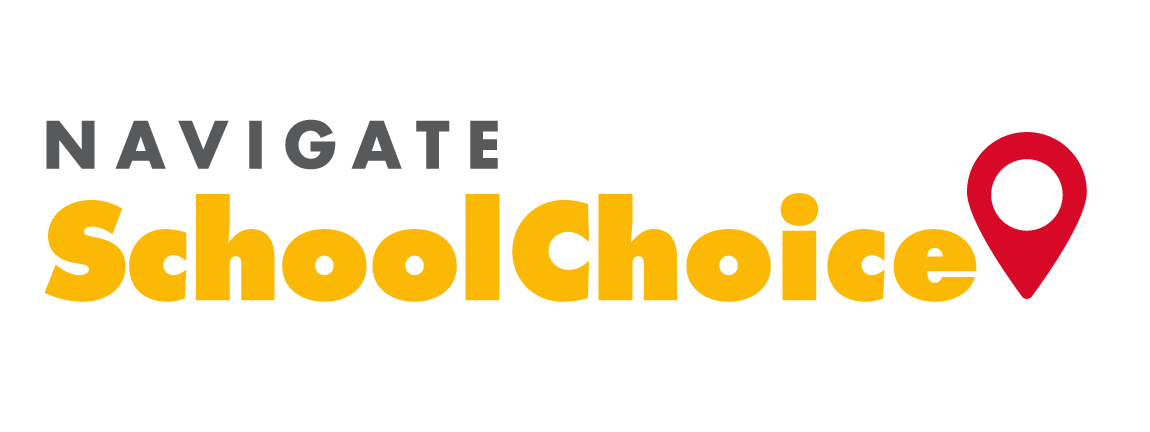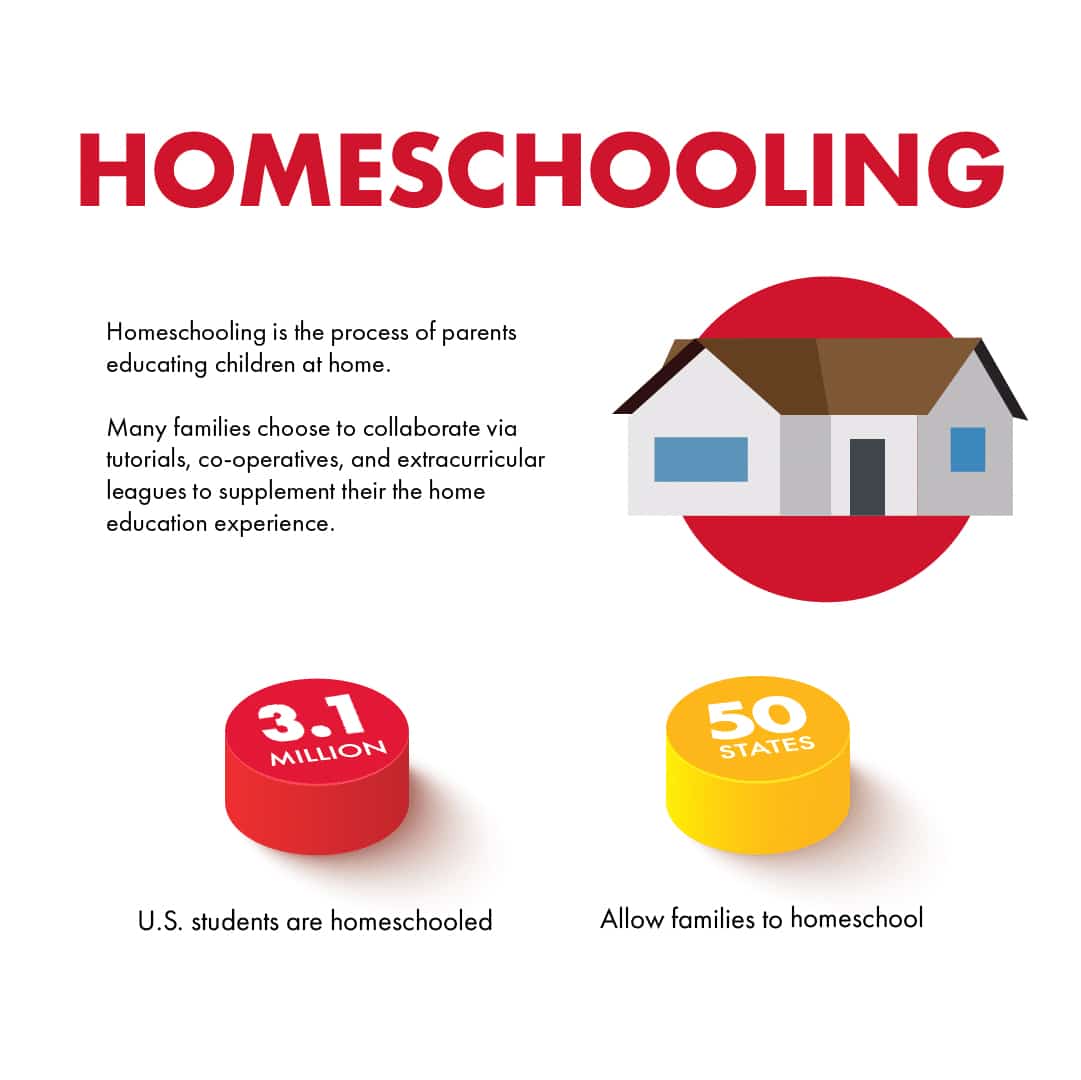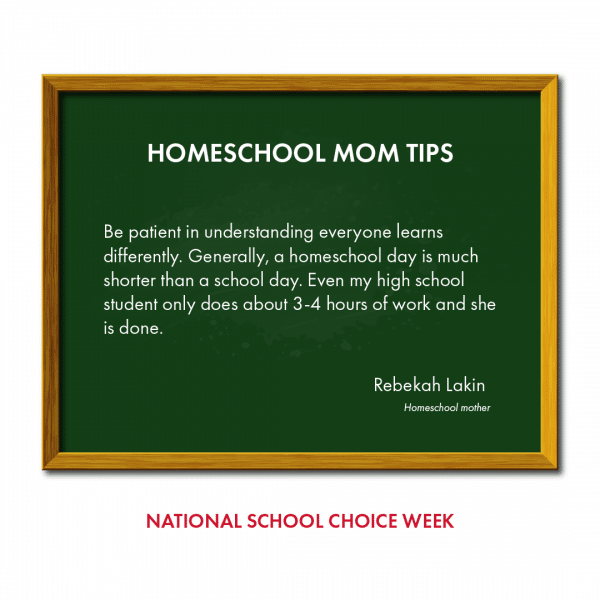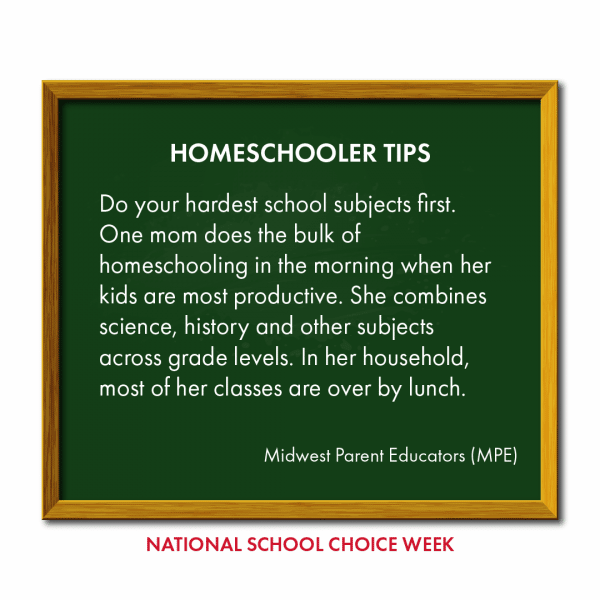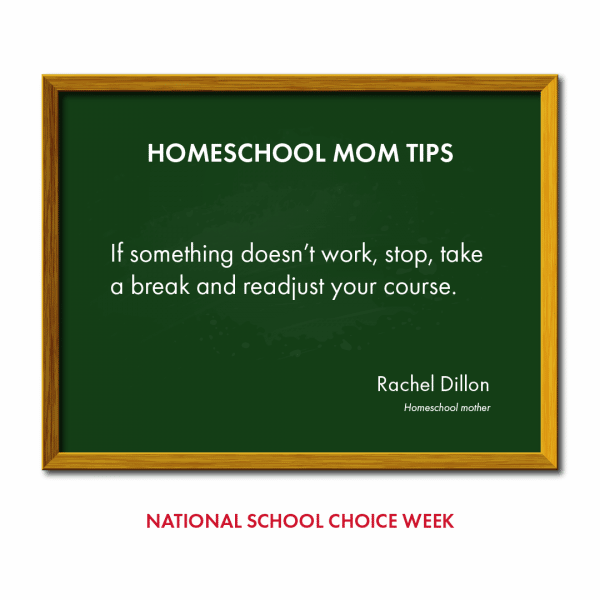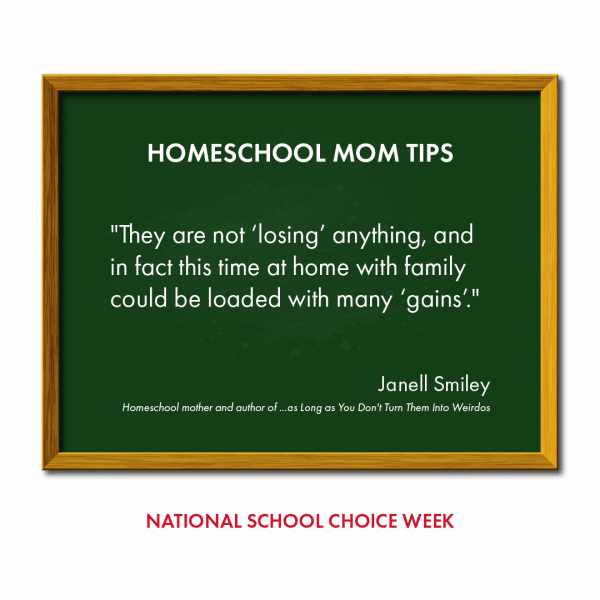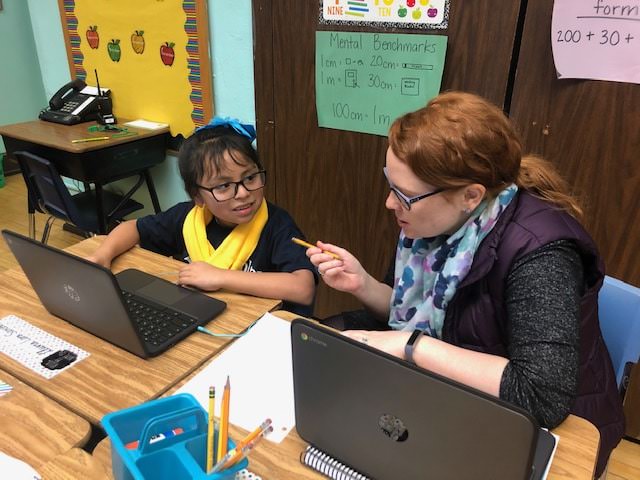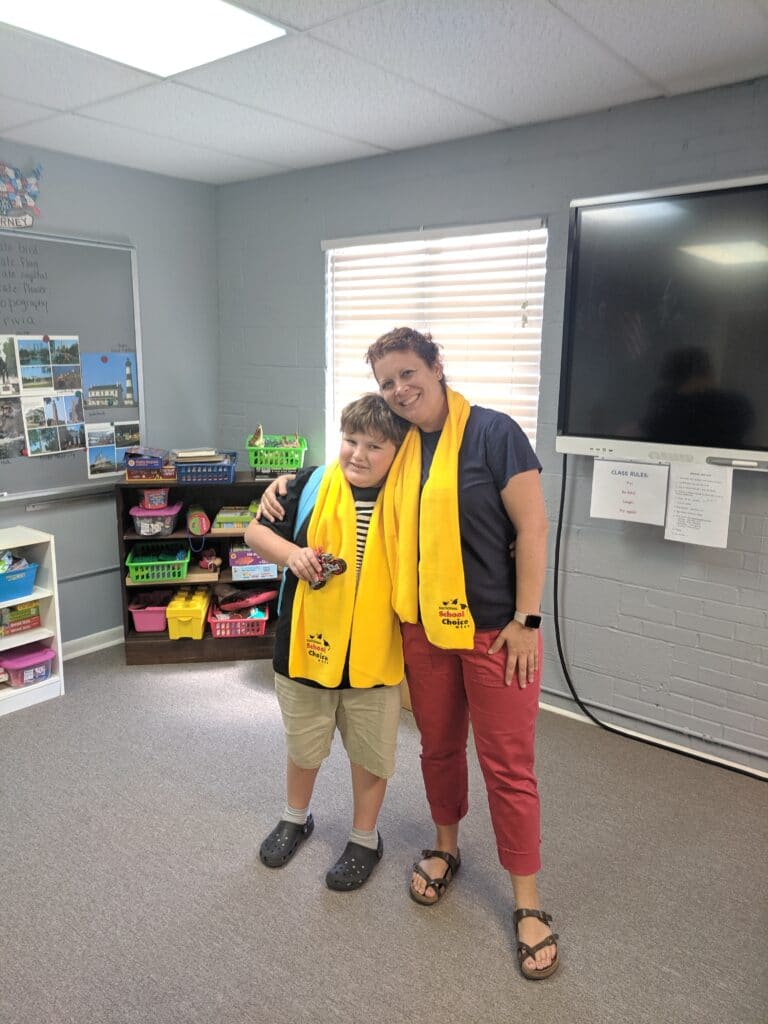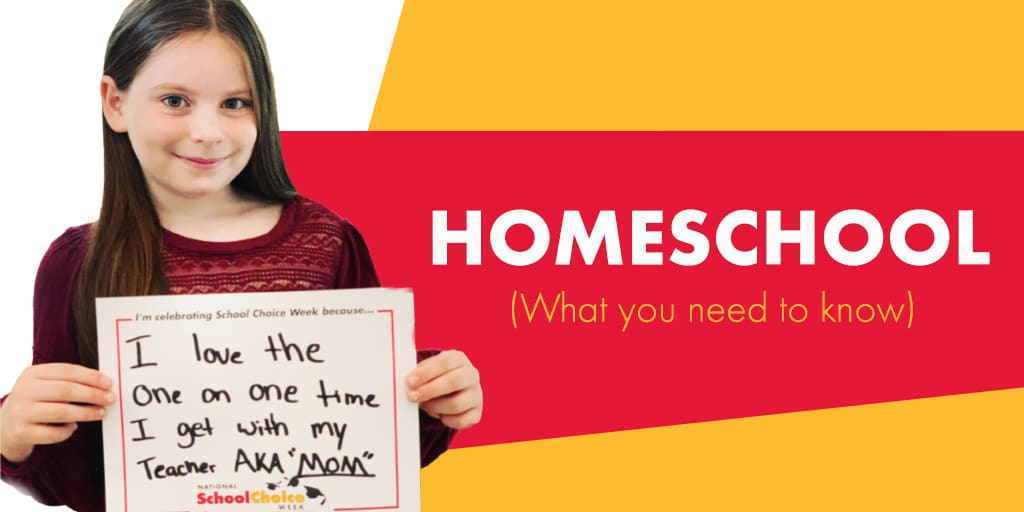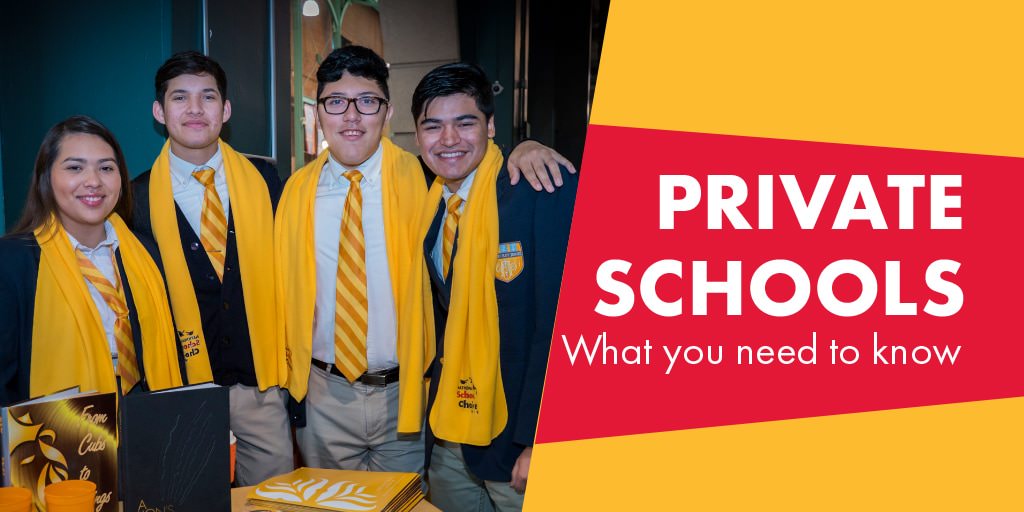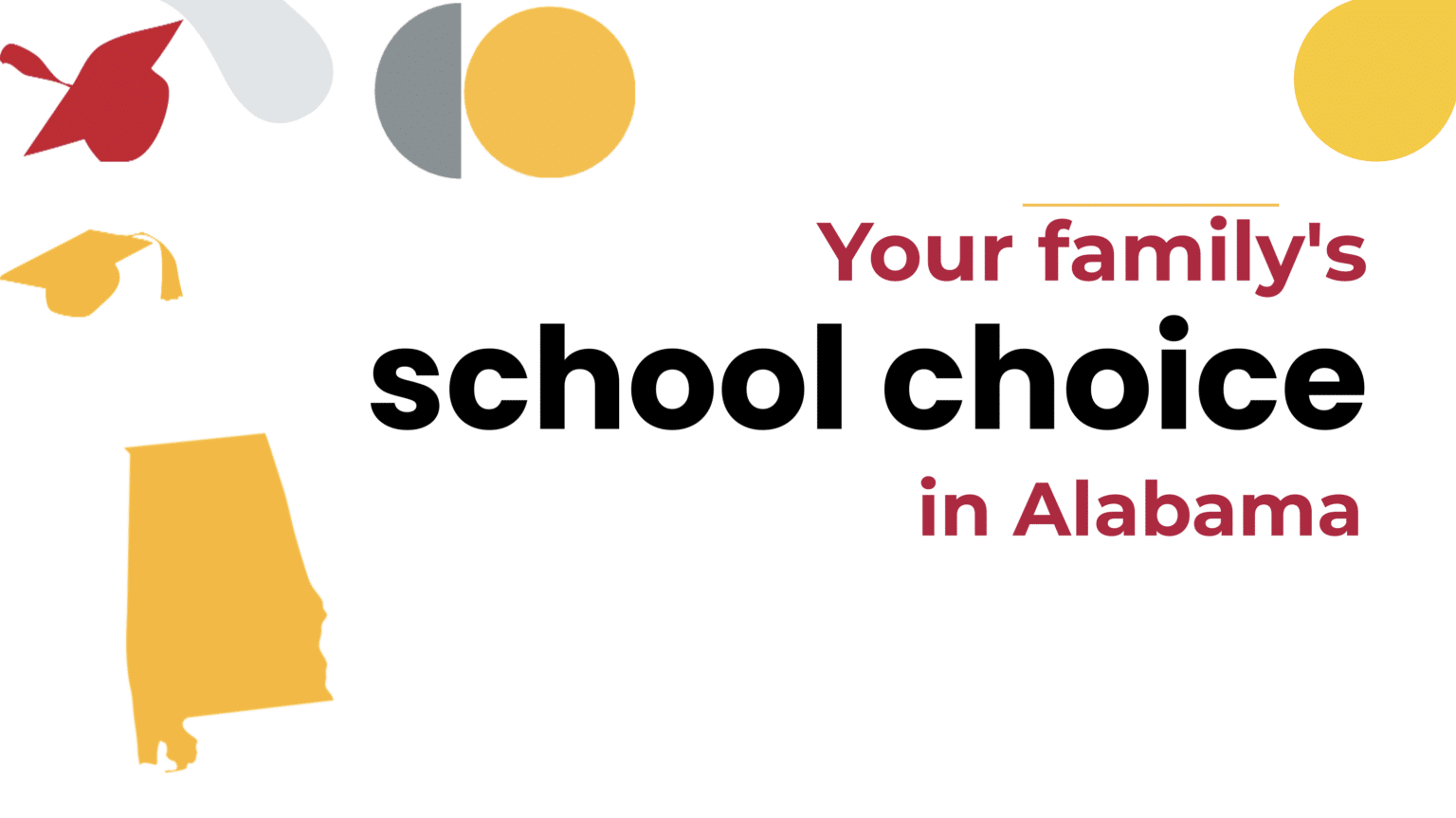Posted on Modified on Posted by National School Choice Week Team
The Ultimate Guide to Homeschooling
Homeschooling is on the rise.
During COVID-19, nearly all families found themselves educating from home. For some families, learning from home was a short-term necessity. But, others have discovered that homeschooling is a great match for their needs.
So, what is homeschooling? It’s the process of parents educating children in the home. Many families choose to collaborate via tutorials, co-operatives, and extracurricular leagues to enhance the home education experience.
How to switch to homeschooling…
Get a quick rundown.

Recent surveys by the U.S. Census Bureau reveal homeschooling growth across all races and income levels. While COVID-19 sparked increased interest in homeschooling, educating at home has been happening for centuries. You may hear a lot of terms like online school, remote learning, and homeschooling thrown around interchangeably, but they’re actually quite different school choices! Read our explainer on the differences.
Importantly, all types of families homeschool for all sorts of reasons. Some may feel unsafe in a traditional learning environment, some may simply desire to learn together as a family, and others may be looking for a unique, personalized curriculum. Homeschooled students have become actors, artists, inventors, civic leaders, authors, entrepreneurs, and more.
Homeschooling is legal in all 50 states, but rules and regulations surrounding homeschooling differ by state. If you’re wondering whether homeschooling would be a good fit for you, you may have questions about how to switch to homeschooling and what resources are available. We created this guide to answer those questions.
Sign up to learn even more about School Choice in your state!
"*" indicates required fields
Homeschool: Starting Out
If you’re just getting started, here are the steps you can take to switch to homeschooling:
1. Review state guidelines
First, review your state’s guidelines for homeschooling. While families can homeschool in all 50 states, each state has different legal options under which you can homeschool. In Texas, for instance, there is just one legal option: All homeschooling families are considered private schools. Meanwhile, in Virginia, there are four different legal options parents can choose from: homeschooling can take place under the home instruction option, with a religious exemption, with a certified tutor, or through a private school option.
You can look to your state’s Department of Education website, or find your state on the Home School Legal Defense Association’s map to read about your legal options for homeschooling.
If you want to know what special education services will be available for your child as a homeschool student, check the state-by-state resources we’ve put together at “How to Continue Your IEP, Even if You Start Homeschooling.”
In some cases, homeschool families may be eligible for grants or scholarship funding. For example, the Home School Legal Defense Association offers a limited number of curriculum grants, disaster relief grants, and homeschool group grants for families in need. And in some states, homeschool families can participate in state-run scholarship programs.
2. Withdraw and inform
Second, if you are already enrolled in a public or private school, it is recommended that you send a withdrawal letter to your school district. You can find a sample withdrawal letter from Midwest Parent Educators. It is a good idea to keep a copy of the withdrawal letter you send, in case any questions arise. Also, you may want to ask for transcripts from your child’s school when you withdraw.
Many states also require that you submit a notice of your intent to homeschool to the state and/or your school district. You can find detailed information at the Home School Legal Defense Association on who should receive your notice of intent.
3. Choose how you’ll learn
Next, develop your plans for what learning will look like in your home. What time will you start in the morning? How often will you learn through outings during the week? There are many curriculums you can choose from if you’d rather not start from scratch. One place to get started is the Homeschool Resource Roundup, which has put together PDFs summarizing hundreds of different curriculum options by grades offered, subjects offered, worldview, and more. There are also many education podcasts where parents and educators share about their homeschooling curricula. Make sure you’re familiar with what subjects are required learning in your state.
One of the joys of homeschooling is getting to know more about your child’s uniqueness and how they learn. There is freedom in this. You may find your child responding better to an approach or curriculum or teaching method that is different from their usual school setting and that’s okay.
Kemi Ingram, homeschool parent
4. Keep track
As you start to homeschool, do your best to keep track. Use a planner or syllabus to record what you work on each week with your child. Don’t forget to follow your state guidelines for testing and assessments!
Homeschool Resources by State
In addition, remember that homeschooling doesn’t happen in a vacuum. With Facebook, co-ops, online resources, and events, you never have to feel alone in your homeschooling journey. Scroll to your state in the list below to find information about homeschool organizations and laws in your state. We’ve also created a round-up of free online learning tools that homeschooling families can use.
⬤ State allows homeschooling
Alabama:
In Alabama, if you are establishing a “home-based private school,” you must notify your local superintendent within 5 days of the start of public school. You may also homeschool with a church school or using a private tutor. Whichever method you choose, it is recommended that you formally withdraw from your current school so that your student is not marked truant.
You are not required to teach specific subjects or use specific standardized tests if you choose to homeschool in Alabama. Your homeschooled child might still be eligible to participate in sports at your local public school, provided he or she meets the district’s requirements.
In the case that you want to switch back to public school, the school you are enrolling in may require records and placement testing.
Learn more about homeschool laws and how to homeschool in Alabama. You can also check out Homeschool Alabama, Home School Legal Defense Association – Alabama, the Alabama State Department of Education’s Nonpublic Schools section, and the Alabama Homeschool Activities Facebook Group.
Alaska:
In Alaska, the state only requires notice of your intent to homeschool if you are homeschooling as a religious private school. If so, you will need to provide notice by the first day of school. Of course, it is recommended that you formally withdraw from your current school so that your student is not marked truant. If you decide to switch back to public school, a portfolio of work or assessments will be used for placement.
You are not required to teach specific subjects or use specific standardized tests if you choose to homeschool in Alaska. If you homeschool, your child might still be eligible to participate in sports or activities at local public schools – reach out to your district to learn more.
Alaska stands out among the states for its flexible funding assistance program available to many homeschoolers! Essentially, the state sets aside funds in the form of an annual allotment for students (including homeschoolers) enrolled in one of more than 30 state-funded correspondence programs. According to Alaska’s Department of Education & Early Development, “This allotment can pay for items such as a student’s books, classes, school supplies, technology support, tutoring, music or activity lessons, and other items related to the student’s education.”
This allotment helps make homeschooling more affordable for some families. Note that the allotment amount may vary by correspondence program and may not be used to purchase religious curriculum. Homeschool in Alaska offers families clear information about allotment funds, as well as tips for selecting the best correspondence program or homeschool program for your family. As of 2024, this program is currently under ongoing legal discussion. Check back for more updates.
You may also wish to check out the Home School Legal Defense Association – Alaska or the Alaska Private and Home Educators Association.
Arizona:
In Arizona, the state requires a one-time notice of your intent to homeschool your child within 30 days of beginning to homeschool in a county. It is also recommended that you formally withdraw from your current school so that your student is not marked truant.
If you choose to homeschool, you are required to teach reading, grammar, math, social studies, and science, but specific standardized tests are not required. Note that your student might still be eligible to participate in sports, activities, or classes at local public schools.
If you move to a new county during the school year, you must file a letter of termination, then submit a new notice of your intent in the county you moved to. In the case that you want to switch back to public school, you must file a letter of termination.
Arizona has a funding assistance program called the Empowerment Scholarship Accounts to help make homeschooling more affordable for families. You may also be interested in checking out Arizona Families for Home Education and Home School Legal Defense Association – Arizona.
Arkansas:
In Arkansas, the state requires notice of your intent to homeschool your child by August 15 of each school year. If you are making the decision to homeschool mid-year, you must provide notice 5 days prior to withdrawing. In the case that you move, you must file your notice to homeschool within 30 days of establishing residency at your new location. It is recommended that you formally withdraw from your current school so that your student is not marked truant.
You are not required to teach specific subjects or use specific standardized tests if you choose to homeschool in Arkansas. Your child might still be eligible to participate in sports, activities, or classes at the local public school, though restrictions may apply. Additionally, homeschooled students with disabilities in Arkansas may be eligible to access special education services from their local school districts.
In the case that you want to switch back to public school, the school will require a transcript with courses taken and grades, as well as a portfolio, for placement into classes. The school may also administer assessments for placement.
In 2023, Arkansas created a new scholarship program to help families afford nonpublic learning environments. By 2025, homeschoolers will be able to opt into the Arkansas Children’s Educational Freedom Account program and keep homeschooling, using the program funding for their approved homeschool curriculum.
You may also want to check out Home School Legal Defense Association – Arkansas, The Education Alliance, the Arkansas Department of Education’s homeschool page, and Cabot Area Home Education (CAHE).
California:
In California, the state requires notice of your intent to homeschool between October 1 – October 15 of each year if you are homeschooling as a home-based private school. It is recommended that you formally withdraw from your current school so that your student is not marked truant.
If you choose to homeschool, you are required to teach courses commonly taught in public schools, but specific standardized tests are not required if you are homeschooling as a home-based private school. In general, children who are homeschooled may face roadblocks if they want to participate in public school sports or activities in California. However, other sports leagues and activities may be available.
In the case that you want to switch back to public school, your school may require records and placement testing.
California may have funding assistance available if you homeschool through a charter school program. For more information on your homeschooling options, you can check out the California Homeschool Network, the California Department of Education: Schooling at Home, Home School Legal Defense Association – California, the Christian Home Educators Association of California, the Homeschool Association of California, Family Protection Ministries, and the Sacramento Christian Organization of Parent Educators (SCOPE).
Colorado:
In Colorado, the state requires notice of your intent to homeschool, if you are homeschooling under Colorado’s homeschool statue, 14 days prior to beginning homeschooling, and annually each school year. It is also recommended that you formally withdraw from your current school so that your student is not marked truant.
If you choose homeschooling, the state requires you to teach specific subjects (such as reading, writing, math, history, civics, literature, and science) and also requires some level of assessment for your child. Your student might still be eligible to participate in sports, activities, or classes at your local public school.
In the case that you decide to switch back to public school, the school may administer placement tests to find the appropriate grade for your student.
You can also check out the Home School Legal Defense Association – Colorado, the Colorado Department of Education’s Homeschooling page, the Christian Home Educators of Colorado (CHEC), the Colorado Heritage Education School System (CHESS), and the Western Colorado Homeschool Connections (SPICE).
Connecticut:
In Connecticut, it is recommended that families provide an optional notice of intent to homeschool within 10 days of beginning homeschooling. Notice may be requested by districts annually. It is also recommended that you formally withdraw from your current school so that your student is not marked truant.
If you choose to homeschool, you are required to teach specific subjects (like reading, U.S. history, and geography) but specific standardized tests are not required. In general, children who are homeschooled may face roadblocks if they want to participate in public school sports in Connecticut. However, other sports leagues and activities are available.
In the case that you decide to switch back to public school, the school may require a portfolio of work or assessments.
To learn more, check out the CT Homeschool Network, Home School Legal Defense Association – Connecticut, The Education Association of Christian Homeschoolers, and the Connecticut State Department of Education – Homeschooling.
Delaware:
In Delaware, the state requires notice of your intent to homeschool before establishing yourself as a homeschool and annually before October 5th. The state also requires that your homeschool submit an end-of-year attendance report. You should also notify your public school of your intent to withdraw.
You are not required to teach specific subjects or use specific standardized tests if you choose to homeschool in Delaware. In general, children who are homeschooled may face roadblocks if they want to participate in public school sports in Delaware. However, other sports leagues and activities are available.
In the case that you decide to switch back to public school, it is up to the school to decide what grade to place your child in.
You can also check out the Delaware Department of Education’s Homeschooling page, Home School Legal Defense Association – Delaware, and Tri-State Homeschool, Inc. (DE, MD, PA, and NJ areas).
Florida:
In Florida, the state requires notice of your intent to homeschool, if you are homeschooling under Florida’s homeschool statute, within 30 days of beginning. It is recommended that you formally withdraw from your public school so that your student is not marked truant.
Florida does not require homeschooling parents to teach specific subjects but does require some level of assessment or testing for those using the homeschool statute. Homeschoolers may still be eligible to participate in sports or activities at their local public school.
In the case that you decide to switch back to public school during the school year, or switch the county you are homeschooling in, you must file a notice of termination of your homeschool with the state. If you start homeschooling in a new county, you should submit a new notice of intent.
Florida has some funding assistance options available to parents who are homeschooling their children. As of 2023, any homeschooler in the state can apply for Florida’s education savings account program. Participating families receive their child’s education funds (about $8,000) in an online account and can use those funds for homeschool expenses, online learning, or even an approved class at a local public school. Homeschoolers who participate agree to meet certain requirements, such as submitting a student learning plan, which other homeschoolers in the state do not need to meet.
You can also check out the Florida Department of Education’s Homeschooling page, the Florida Parent Educators Association, Home School Legal Defense Association – Florida, and the West Florida Home Education Support League.
Georgia:
In Georgia, the state requires notice of your intent to homeschool within 30 days of the start of homeschooling, and annually by September 1st afterwards. It is recommended that you formally withdraw from your current school so that your student is not marked truant.
If you choose homeschooling, the state requires you to teach specific subjects (such as reading, math, and science) and also requires some level of assessment for your child. In 2021, Georgia enacted a law that neighborhood schools must allow students to try out for sports teams and extracurricular activities. In return, participating homeschool students must take at least one class at the school.
In the case that you decide to switch back to public school, you will need to create a withdrawal form from homeschool and have your enrolling school validate your homeschool work.
You may also want to check out the Georgia Home Education Association, the Georgia Department of Education’s Homeschooling page, Home School Legal Defense Association – Georgia, and Eagle’s Nest Christian Home Educators Association (ENCHEA).
Hawaii:
In Hawaii, the state requires notice of your intent to homeschool prior to beginning to homeschool. It is required that you withdraw from your current school through the notice of intent to homeschool that is given to your principal.
Hawaii does not require homeschooling parents to teach specific subjects but does require a structured curriculum and some level of assessment. In general, children who are homeschooled may face roadblocks if they want to participate in public school sports in Hawaii. However, other sports leagues and activities are available.
Also, Hawaii may have funding assistance available if you decide to homeschool through a charter homeschool program.
In the case that you decide to switch back to public school, you must submit notification to the principal of your zoned public school. You can also check out the Hawaii Homeschool Association, Home School Legal Defense Association – Hawaii, the Hawaii State Department of Education’s Homeschooling page, and Christian Homeschoolers of Hawaii.
Idaho:
In Idaho, the state does not require you to submit notice of your intent to homeschool. However, it is recommended that you formally withdraw from your public school so that your student is not marked truant.
If you choose to homeschool, you are required to teach subjects commonly taught in Idaho public schools, but specific standardized tests are not required. Keep in mind that your homeschooled child may be eligible to take classes at the local public school, or participate in sports, through the state’s dual enrollment programs.
Idaho may have funding assistance available if you homeschool through a public school program. The Home School Legal Defense Association has a great how-to about homeschooling in Idaho. You may also want to check out Homeschool Idaho or the North Idaho Home Educator’s Association.
Illinois:
In Illinois, the state does not require you to register your homeschool program or file a notice of your intent to homeschool. However, if you are withdrawing your child from another school, it is recommended that you inform the school of your decision so your student is not marked truant.
If you choose to homeschool, you are required to teach specific subjects (including language, science, and the fine arts) but specific standardized tests are not required. Homeschooled students may enroll part time at local public schools and request to participate in sports and activities, but schools are not required by law to grant this request.
In the case that you decide to return to public school, the school will assess placement based on evaluation, test scores, samples of work, and/or curriculum.
Illinois offers a tax credit up to $750 for educational expenses, which homeschooling families can be eligible for. You can learn more at Home School Legal Defense Association – Illinois, the Illinois State Board of Education’s Homeschooling page, and the Illinois Christian Home Educators.
Indiana:
In Indiana, the state does not require notice of your intent to homeschool. However, it is recommended that you formally withdraw your child from their current school so your student is not marked truant.
You are not required to teach specific subjects or use specific standardized tests if you choose to homeschool in Indiana. Homeschool students may be eligible to participate in classes, sports, or activities at local public schools, though restrictions may apply. Additionally, homeschoolers are eligible to receive some special education services from Indiana school districts.
In the case that you decide to return to public school, the school may make a placement decision based on what grade the parent feels is appropriate, or use assessments to determine placement.
Indiana offers a tax deduction of up to $1,000 per child for homeschooling expenses. Find out more at the Indiana Department of Education, the Home School Legal Defense Association – Indiana, the Indiana Home Educators’ Network, Indiana Foundation for Homeschooling, the Indiana Association of Home Educators and the Indiana Association of Home Educators Action.
Iowa:
In Iowa, notice of your intent to homeschool is required by September 1 or within 14 days of starting unless you are homeschooling via private instruction (IPI or PI). It is recommended that you formally withdraw your student from their current school so they are not marked truant.
The state does not require standardized testing for most homeschoolers but in some cases requires parents to teach specific subjects, like math and reading. Homeschool students in Iowa may still be eligible to participate in classes, sports, or activities at local public schools through dual enrollment. Additionally, homeschoolers are eligible to receive some special education services from Iowa school districts.
Iowa offers a funding assistance program called HSAP (Homeschool Assistance Program), which may include access to free school books and a teacher of your public school’s choice. Your local public school district may offer HSAP to resident or open-enrolled homeschooled students; however, your district is not required to provide this option. Homeschool families are also eligible for a parental tuition tax credit of up to $500 per student.
You can learn more at the Iowa Department of Education, Homeschool Iowa, and the Home School Legal Defense Association – Iowa.
Kansas:
In Kansas, notice of your intent to homeschool is required. You must register as a non-accredited private school before starting to homeschool. It is also recommended that you formally withdraw from your public school so your student is not marked truant.
You are not required to teach specific subjects or use specific standardized tests if you choose to homeschool in Kansas. As for extracurriculars, a bill passed in 2023 makes it easier for homeschool students to participate in Kansas State High School Association activities, like sports and band.
In the case that you decide to return to public school, the school will test students for appropriate placement and decide what credits to accept.
You can learn more at the Home School Legal Defense Association – Kansas, the Christian Home Educators Confederation of Kansas (CHECK), Kansas Home Educators, and the Midwest Parent Educators.
Kentucky:
In Kentucky, notice of your intent to homeschool is required annually within two weeks of the school year beginning or ten days prior to starting if you are starting mid-year. This notification should be sent to the superintendent of the local school board. Also, it is recommended that you formally withdraw from your public school so your student is not marked truant. Note that since there isn’t a homeschool statute in Kentucky, homeschool families technically operate under the private school statute.
If you choose to homeschool, you are required to teach specific subjects (like reading, writing, math, and history) but specific standardized tests are not required. In general, children who are homeschooled may face roadblocks if they want to participate in public school sports or activities in Kentucky. However, other sports leagues and activities are available.
Homeschool parents are required to report basic information such as names and ages of students, but local school districts are never allowed to demand information that is not legally required. In the case that you decide to return to public school, check with your school to see what their protocols are for assessment and placement.
You may also want to check out the state’s informational packet on homeschooling, Home School Legal Defense Association – Kentucky, and the Christian Home Educators of Kentucky.
Louisiana:
As of 2022, about 16,000 Louisiana families homeschool. In Louisiana, notice of your intent to homeschool is required within 15 days of starting and annually by October 1. If you initially begin to homeschool in the middle of the year, it is required that you file notice 12 months after your initial approval. Also, it is recommended that you formally withdraw from your public school so your student is not marked truant.
The state requires homeschooling families to teach subjects covered in public schools, and also requires some level of assessment of students using the home study option. Note that homeschool students in Louisiana may still be eligible to participate in classes, sports, or activities at local public schools, though restrictions may apply.
In the case that you decide to return to public school, check with your school for their protocol; each school has unique guidelines for placement.
Louisiana offers educational funding assistance that homeschoolers may be eligible for, such as the Louisiana Taylor Opportunity Program for Students (TOPS) and the Louisiana homeschool tax deduction. You can learn more at the Louisiana Department of Education, Home School Legal Defense Association – Louisiana, and Homeschool Louisiana.
Maine:
As of 2022, about 5.6% of all Maine K-12 students choose homeschooling. In Maine, notice of your intent to homeschool is required within 10 days of starting and annually by September 1. It is recommended that you formally withdraw from your current school so your student is not marked truant.
The state requires homeschooling parents to teach specific subjects (like math, English, and science), and also requires some level of assessment of homeschooled students. Note that your homeschooled student might still be eligible to participate in sports or activities at your local public school.
In the case that you decide to return to public school, grade level placement is a decision that the local school makes; however, you can appeal this decision if necessary.
Find out more at Home School Legal Defense Association – Maine, the Maine Department of Education’s Homeschooling page, the New England Happy Homeschoolers Facebook group, and Homeschoolers of Maine.
Maryland:
In Maryland, notice of your intent to homeschool is required immediately upon making this decision or your student will be considered truant. It is also required that you formally withdraw from your public school.
Note that Maryland homeschool families are never required to enroll their children in public school. If you receive information to the contrary, you may want to ask for legal assistance.
The state requires homeschooling parents to teach specific subjects (like math and English) and may also request to review samples of a homeschooling family’s education materials and work. In general, children who are homeschooled may face roadblocks if they want to participate in public school sports or activities in Maryland. However, other sports leagues and activities are available.
In the case that you decide to return to public school, placement decisions will vary by county, so contact your local school.
You can learn more at Home School Legal Defense Association – Maryland, the Maryland State Department of Education’s Homeschooling page, the Maryland Homeschool Association, the Maryland Association of Christian Home Educators, and Severn Run Classical Christian Homeschool Academy.
Massachusetts:
In Massachusetts, notice of your intent to homeschool is required annually in most districts; however, it does vary depending on your zoned district so check into their guidance. Also, it is recommended that you formally withdraw from your public school so your student is not marked truant.
The state requires homeschooling parents to teach specific subjects (including reading, geography, and U.S. history) and may require some level of assessment of homeschooled students. Note that homeschoolers in Massachusetts may still be eligible to participate in sports at local public schools, though restrictions apply. For example, the Saranac Lake Central School District approved a policy change this year to make extracurriculars more open to homeschoolers.
In the case that you decide to return to public school, your school requires notification within 30 days of your intent to switch.
Find out more at the Home School Legal Defense Association – Massachusetts, the Massachusetts Home Learning Association, and the Massachusetts Homeschool Organization of Parent Educators (MassHOPE)
Michigan:
You are not required to notify government or education authorities if you are homeschooling under Michigan’s homeschooling statute. However, submitting a notice of your intent to homeschool at the beginning of each school year is required if you are homeschooling as a nonpublic school. It is also recommended that you formally withdraw from your public school so your student is not marked truant.
If you choose to homeschool, you are required to teach specific subjects (like reading and math) but specific standardized tests are not required. Note that homeschool students in Michigan may be eligible to participate in sports at local public schools if they receive permission from their district.
In the case that you decide to return to public school, contact your local school as each school has their own unique placement guidelines.
Learn more at HSB, Inc., Metro Parent: How to Homeschool in Michigan, Home School Legal Defense Association – Michigan, Blue Water Homeschool Teens Cooperative, and the Michigan Christian Homeschool Network.
Minnesota:
In Minnesota, notice of your intent to homeschool is required by October 1 or within 15 days of withdrawing. Also, it is required that you formally withdraw from your public school.
The state requires homeschooling families to teach specific subjects (like reading, writing, math, and science) and also requires some level of assessment of students. Minnesota homeschoolers may still be eligible to participate in sports or activities at local public schools.
Minnesota offers some funding assistance for homeschool expenses through a tax deduction program.
In the case that you decide to return to public school, the school will place your student based on evaluation of their records.
You may also be interested in checking out the Minnesota Homeschoolers’ Alliance, Home School Legal Defense Association – Minnesota, the Minnesota Department of Education’s Homeschooling page, and Minnesota Association of Christian Home Educators.
Mississippi:
In Mississippi, notice of your intent to homeschool is required by September 15 or immediately upon your decision to homeschool if starting mid-year. Also, it is recommended that you formally withdraw your student so they are not marked truant.
The state does not require homeschooling families to teach specific subjects and does not require standardized testing for homeschoolers. In general, children who are homeschooled may face roadblocks if they want to participate in public school sports or activities in Mississippi. However, other sports leagues and activities are available.
In the case that you decide to return to public school, contact your local school to find out what their placement guidelines are as they each have their own process.
You can learn more at Home School Legal Defense Association – Mississippi, the Mississippi Homeschool Support Group, and the Mississippi Home Educators Association.
Missouri:
In Missouri, the state does not require notice of your intent to homeschool; however, it is recommended that you formally withdraw from your public school so your student is not marked truant.
For Missouri homeschoolers, the state requires families to teach specific subjects (like reading, writing, math, and science) but does not require specific standardized testing. Note that homeschool students may be eligible to participate in sports or activities at their local public school if they enroll there part-time.
As of 2024, qualifying homeschool students may be eligible to participate in the MOScholars Program. This program grants scholarships to students with special needs or from low-income families to use for certain educational expenses. Note that families who choose to participate may be required to undergo background checks and students may be required to take standardized tests.
You can also check out Home School Legal Defense Association – Missouri, Midwest Parent Educators, the Missouri Families for Home Education, and the Missouri Association of Teaching Christian Homes, Inc. (MATCH).
Montana:
In Montana, the state requires annual notice of your intent to homeschool. This notice should be sent to the superintendent of schools in your county. Also, it is recommended that you formally withdraw from your public school so your student is not marked truant.
If you choose homeschooling, then you are required to teach the basic subjects taught in public schools, but you are not required to use specific standardized tests. Homeschooled students in Montana may be eligible to participate in sports, activities, or classes at local public schools. In fact, a bill passed in 2023 clarified that homeschool students can enroll part-time in public schools, making it easier for families to blend home and public options.
In the case that you decide to return to public school, contact your local school to find out their placement guidelines.
You may also want to check out Home School Legal Defense Association – Montana, the Yellowstone Coalition of Home Educators, and the Montana Coalition of Home Education.
Nebraska:
In Nebraska, the state requires notice of your intent to homeschool by July 15 or promptly upon choosing to homeschool. The state also requires an annual information survey and parent representative form. It is recommended that you formally withdraw from your public school so your student is not marked truant.
If you choose homeschooling, you’re required to teach specific subjects (including language arts, mathematics, science, social studies, and health), but specific standardized tests are not required. Homeschooled students who enroll part-time at their local public school may be eligible to participate in sports and other activities.
In the case that you decide to return to public school during the school year, notify the Nebraska Department of Education.
You can learn more at Home School Legal Defense Association – Nebraska, Nebraska Homeschool, and the Nebraska Christian Home Educators Association.
Nevada:
In Nevada, the state requires a notice of intent to homeschool before you start and no later than 10 days after withdrawing. It is required that you formally withdraw from your public school.
If you choose homeschooling, you’re required to teach specific subjects (including language arts, mathematics, science, social studies, and health), but specific standardized tests are not required. Your homeschooled student might still be eligible to participate in sports or activities at the local public school. Plus, homeschoolers with special needs are eligible to receive special education services from local school districts.
In the case that you decide to return to public school, your student’s placement may be subject to testing and review of their work.
You may also want to check out the Nevada Department of Education – Homeschooling, Home School Legal Defense Association – Nevada, Nevada Homeschool Network, Nevada Moms, and RISE Education Resource Center.
New Hampshire:
In New Hampshire, it is required that you provide notice of your intent to homeschool within 5 days of starting and/or if you move to a new school district. It is recommended that you formally withdraw from your public school so your student is not marked truant.
The state requires homeschooling parents to teach specific subjects (including science, math, reading, and government) and also requires some level of assessment of homeschooled students. Your homeschooled student might still be eligible to participate in sports or activities at the local public school.
If you decide to stop homeschooling, you must file a written notice of termination. In the case that you decide to return to public school, your student’s placement will be determined based on the documentation you provide.
Homeschoolers may be eligible to apply for New Hampshire’s “Education Freedom Account” program, which allows low and middle-income students to receive about $4,700 of funds to customize their education. The funds can be used for tutoring or books, educational therapy, and more. In 2023, eligibility for the program was expanded – now students from families earning up to 350% of the federal poverty line can apply.
You can learn more at Home School Legal Defense Association – New Hampshire, Granite State Home Educators, and New Hampshire Homeschooling Coalition.
New Jersey:
In New Jersey, there are more than 5,000 students homeschooling. It is not required that you provide notice of your intent to homeschool in New Jersey; however, it is recommended that you formally withdraw from your current school so your student is not marked truant.
The state requires homeschooling parents to give children an education that is academically “equivalent” to what he or she would receive at school, but does not require standardized testing for homeschoolers. While homeschool students in New Jersey are not legally prohibited from playing on public school sports teams, individual district policies often prevent them from participating.
In the case that you decide to return to public school, your student’s placement may be based on standardized testing assessment.
You can also check out the New Jersey Department of Education and Home School Legal Defense Association – New Jersey.
New Mexico:
In New Mexico, it is required that you provide notice of your intent to homeschool within 30 days of starting and annually by August 1. It is recommended that you formally withdraw from your public school so your student is not marked truant.
If you choose homeschooling, you’re required to teach specific subjects (including reading, math, and science), but specific standardized tests are not required. Your child may still be eligible to participate in sports or classes at a local public school, but requirements may vary by school.
If you decide to return to public or private school, you should disenroll your student from the homeschool system through the New Mexico Public Education Department. Your student’s placement will be determined by age or their score on state achievement tests – the local school board will determine credit acceptance.
You can learn more at the New Mexico Public Education Department, Home School Legal Defense Association – New Mexico, and the Christian Association of Parent Educators – New Mexico (CAPE NM).
New York:
There are about 54,000 students who homeschool across the Empire State! In New York, notice of your intent to homeschool is required within 14 days of starting and annually by July 1. Families in New York City should submit their paperwork to the NYC Department of Education Office of Homeschooling. Families outside of New York City should submit to their district’s superintendent. While homeschooling, families should also submit an annual individual home instruction plan and quarterly reports.
Homeschooling parents are required to teach specific subjects (such as reading, writing, and physical education) and assess their child annually. Unfortunately, children who are homeschooled may face roadblocks if they want to participate in public school sports or activities in New York. But, you can always look for other sports leagues and activities near you!
In the case that you decide to return to public school, the school will determine your student’s placement based on records, potential assessments, and the principal’s decision.
You can also check out Home School Legal Defense Association – New York and Loving Education at Home (LEAH).
North Carolina:
In North Carolina, notice of your intent to homeschool is required prior to starting. Also, it is recommended that you formally withdraw from your public school so your student is not marked truant.
While the state doesn’t lay out specific subjects that homeschooling families must teach, it does require that homeschooling students take a standardized test annually. In general, children who are homeschooled may face roadblocks if they want to participate in public school sports or activities in North Carolina. However, other sports leagues and activities are available.
North Carolina offers funding assistance for students with disabilities, including homeschooled students, through a state-funded program.
In the case that you decide to return to public school, you should notify the NC Division of Non-Public Education and contact your local principal for the enrollment process.
For more info, check out the North Carolina Department of Public Instruction’s Homeschool page, Home School Legal Defense Association – North Carolina, North Carolinians for Home Education, Alamance County Christian Home Educators, Central Carolina Home Educators, Inc., High Point Home Educators.
North Dakota:
In North Dakota, notice of your intent to homeschool is required at least 14 days prior to starting or within 14 days of moving and annually after that. Also, it is recommended that you formally withdraw from your public school so your student is not marked truant.
The state requires homeschooling parents to teach specific subjects (like reading, math, and physical education) and also requires standardized testing in certain grades. In some cases, homeschool students in North Dakota may still be eligible to participate in sports or activities at local public schools, though restrictions may apply.
In the case that you decide to return to public school, you may submit record-keeping documentation to the superintendent of your school.
You can also check out the North Dakota Department of Public Instruction – Homeschooling, Home School Legal Defense Association – North Dakota, and the North Dakota Home School Association.
Ohio:
In Ohio, it is required that you provide notice of your intent to homeschool no later than the first week of school or within one week of withdrawal. You must also provide notice annually and if you move. It is recommended that you formally withdraw from your current school so your student is not marked truant.
The state requires homeschooling parents to teach specific subjects (like language, math, and Ohio history) and assess their students annually. Note that homeschooled students in Ohio may still be eligible to participate in sports or classes at local public schools.
Ohio offers funding assistance if a homeschool student has an Individualized Education Program (IEP). These students may qualify for the Peterson Scholarship. Also, homeschool families in Ohio are eligible for a $250 tax credit for learning expenses.
You can also check out the Ohio Department of Education’s Homeschooling page, Ohio Homeschooling Parents, Home School Legal Defense Association – Ohio, and the Christian Home Educators of Ohio.
Oklahoma:
In Oklahoma, it is not required to send notice of your intent to homeschool to the state or your local school. However, it is recommended that you formally withdraw from your current school so your student is not marked truant.
The state does not define specific required subjects that homeschooling parents must teach, and does not require standardized testing for homeschoolers. In general, children who are homeschooled may face roadblocks if they want to participate in public school sports or activities in Oklahoma. However, other sports leagues and activities are available.
If you decide to return to public school during the year, your student may be required to complete a standardized test for placement.
Oklahoma offers limited funding assistance for homeschool families if you are enrolled via a virtual charter. Also, in 2023, lawmakers passed the Oklahoma Parental Tax Credit Act. Once this new tax credit program launches in January 2024, all homeschool students can apply for a refundable income tax credit. The credit will cover $1,000 of qualified learning expenses, including private online learning courses, academic tutoring, textbooks, curriculum, and instructional material, or fees for nationally standardized tests.
To learn more, you can also check out the Oklahoma State Department of Education’s Homeschooling page, Home School Legal Defense Association – Oklahoma, Homeschool Oklahoma, and the Christian Home Educators Fellowship.
Oregon:
In Oregon, about 4 to 5% of K-12 students are homeschooled. Notice of your intent to homeschool is required within 10 days of starting and should be sent to your local education service district. It is recommended that you formally withdraw from your public school so your student is not marked truant.
While the state doesn’t lay out specific subjects that homeschooling families must teach, it does require that homeschooling students take tests approved by the State Board of Education in certain grades. Note that homeschooled students in Oregon may still be eligible to participate in sports or activities at local public schools.
Oregon offers limited funding assistance for homeschooling if you are enrolled via a virtual charter, like Oregon Family School.
You may also want to check out the Oregon Department of Education’s Homeschooling page, the Oregon Home Education Network, Home School Legal Defense Association – Oregon, and the Oregon Christian Home Education Association Network.
Pennsylvania:
If you’re using the homeschooling statute in Pennsylvania, it is required that you provide notice of your intent to homeschool by submitting a notarized affidavit at the time of choosing homeschool and annually by August 1. It is recommended that you formally withdraw from your current school so your student is not marked truant.
The state requires homeschooling parents to teach specific subjects (like English, science, and health) and also requires standardized testing in specific grades if you are using the homeschooling statute. Note that homeschooled students in Pennsylvania may still be eligible to participate in sports or activities at local public schools. Also, homeschoolers with special learning needs are eligible to receive special education support and resources from local public school districts.
You can also check out the Home School Legal Defense Association – Pennsylvania, LCC Homeschool Association of PA, and the Christian Homeschool Association of Pennsylvania.
Rhode Island:
In Rhode Island, it is required that you provide notice of your intent to homeschool prior to starting. This should be submitted to your local school committee. Formally withdrawing from public school is required in some districts and recommended in all.
The state requires homeschooling parents to teach certain subjects (like reading, writing, and physical education), but does not require homeschoolers to take standardized tests. In some cases, homeschooled students in Rhode Island may still be eligible to participate in sports or activities at local public schools, though restrictions may apply.
In the case that you decide to return to public school, notify your district committee. Your student’s grade assignment may be up to the discretion of the individual school.
For more, check out the Rhode Island Department of Education’s Homeschooling page, Home School Legal Defense Association – Rhode Island, the Rhode Island Home Education Community, Enrich RI, and the Rhode Island Guild of Home Teachers.
South Carolina:
In South Carolina, if you are homeschooling under a homeschool statute, an application must be submitted to the board of trustees prior to starting. Also, it is recommended that you formally withdraw from your public school so your student is not marked truant.
The state requires homeschooling parents to teach specific subjects (like reading, math, and science) and also requires annual standardized tests for students using the homeschool statute. Note that homeschooled students in South Carolina may still be eligible to participate in sports or activities at local public schools.
You can learn more at the South Carolina Department of Education’s Homeschooling page, Home School Legal Defense Association – South Carolina, the South Carolina Home Educators Association, the South Carolina Association of Independent Home Schools, and the Grow & Learn on Weekdays (GLOW).
South Dakota:
In South Dakota, it is required that you provide notice of your intent to homeschool within 30 days of beginning homeschooling. It is required that you formally withdraw from your public school.
The state requires homeschooling parents to include language arts and math in their curriculum, but standardized tests are not currently required. According to a bill passed in 2021 to empower parental choice, any homeschool student in South Dakota is eligible to participate in athletics, fine arts, or other activities sponsored by the South Dakota High School Activities Association.
In the case that you decide to switch back to public school, South Dakota schools may use a credit-by-exam program for placement.
For more, check out Home School Legal Defense Association – South Dakota, the Education Alliance of Christian Homeschoolers in South Dakota, and the South Dakota Christian Home Educators.
Tennessee:
In Tennessee, if you are an independent homeschool, it is required that you provide notice of intent to homeschool before the school year or upon choosing homeschool and annually thereafter. Formally withdrawing from public school is required in some districts and recommended for all districts.
While the state doesn’t lay out specific subjects that homeschooling families must teach, it does require that homeschooling students take standardized tests in some grades. Note that homeschooled students in Tennessee may still be eligible to participate in sports or activities at local public schools.
In the case that you decide to return to public school, your school will assess to determine grade level placement.
Tennessee offers funding assistance for students with special needs through the Special Needs Individualized Education Account Program. You can learn more at the Tennessee Department of Education’s Homeschooling page, Home School Legal Defense Association – Tennessee, the MidEast Tennessee Home Education Association, Memphis-area Home Education Association, and the Tennessee Home Education Association.
Texas:
The Texas Homeschool Coalition estimates that more than 750,000 students in the state are homeschooled. In Texas, it is not required that you provide notice of your intent to homeschool; however, it is recommended that you formally withdraw from your public school so your student is not marked truant.
The state requires homeschooling parents to teach certain subjects (including math, spelling, and good citizenship), but does not require homeschoolers to take standardized tests. In some cases, homeschooled students may still be eligible to participate in sports or activities at local public schools.
You may also want to check out the Texas Education Agency’s Homeschooling page, the Homeschool Association of the Lone Star State, Texas Home Educators, the Texas Homeschool Coalition, Greater Houston Area Home Educators, the Home School Legal Defense Association – Texas, and the Arlington Association of Home Educators.
Utah:
In Utah, it is required that you provide a notarized Utah homeschool affidavit prior to starting homeschool. It is also recommended that you formally withdraw your student from their current school so they are not marked truant.
The state does not define specific required subjects that homeschooling parents must teach, and does not require standardized testing for homeschoolers. Note that homeschooled students in Utah may still be eligible to participate in sports, activities, or classes at local public schools.
A new scholarship open to all Utah students, including all homeschoolers, will launch for the 2024-2025 school year: the Utah Fits All Scholarship Program. This education savings account program will give $8,000 in flexible education funding to families choosing to enroll in a nonpublic school option, like homeschool. Besides homeschool curriculum, families may be able to use the funds for other customized learning needs, including tutoring services, educational software, individual classes at a local public school, or dual enrollment at a technical college.
You can learn more at the Utah State Board of Education’s Homeschooling page, the Utah Home Education Association, Home School Legal Defense Association – Utah, and Utah Christian Home School Association.
Vermont:
In Vermont, it is required that you provide notice of your intent to homeschool by submitting the Home Study Enrollment Form between March 1 and August 1 annually. As of 2023, you are no longer required to include a minimum course of study in this notification. It is recommended that you formally withdraw your student from their public school so they are not marked truant.
The state requires homeschooling parents to teach specific subjects (including communication skills, history, and the fine arts) and assess their children annually. In light of a new law passed in 2023, homeschool families are no longer required to submit these annual assessments to the Agency of Education. You can read more about this year’s changes to Vermont homeschooling law at the Home School Legal Defense Association.
Note that homeschooled students in Vermont may still be eligible to participate in sports or classes at local public schools.
You can also check out the Vermont Home Education Network, Homeschooling Vermont Facebook group, and Home School Legal Defense Association – Vermont.
Virginia:
About 57,000 Virginia students are currently homeschooling. In Virginia, it is required that you provide notice of your intent to homeschool by August 15 or immediately upon choosing homeschool. A unanimous Virginia Supreme Court decision in June 2020 emphasized that this step is a simple notification rather than a request to the school board. This court decision also ruled that school boards cannot establish their own demands for homeschooling families.
The state does not require homeschooling parents to teach specific subjects but may require some amount of standardized testing depending on the homeschool option chosen. In general, children who are homeschooled may face roadblocks if they want to participate in public school sports in Virginia. However, other sports leagues and activities are available.
It is recommended that you formally withdraw from your public school so your student is not marked truant. In the case that you decide to return to public school, your school will review your homeschool records and may administer tests for placement.
You may also wish to check out the Home Educator’s Association of Virginia, the Organization of Virginia Homeschoolers, and Home School Legal Defense Association – Virginia.
Washington:
In Washington, notice of your intent to homeschool is required annually by September 15 or within two weeks of any quarter, trimester, or semester. It is recommended that you formally withdraw from your current school so your student is not marked truant.
The state requires homeschooling parents to teach specific subjects (including math, reading, and history) and also requires annual assessments for homeschooled students. Note that homeschoolers in Washington may still be eligible to participate in sports or activities at local public schools. Some Washington school districts even offer academic and enrichment activities for homeschool families through Parent Partnership Programs.
In the case that you decide to return to public school, your homeschool records will be reviewed for placement. Testing may be required to determine your student’s placement.
You can learn more at Washington Home School Organization, the Christian Family Home Educators (CFHE), Home School Legal Defense Association – Washington, and the Christian Heritage Home Educators of Washington.
West Virginia:
In West Virginia, notice of your intent to homeschool is required, either by seeking school board approval or by submitting a notice of intent. This notice of intent is required before you begin homeschooling or when moving to a new county. Also, it is recommended that you formally withdraw from your public school so your student is not marked truant.
While misinformation about homeschooling has recently spread in a couple of West Virginia counties, the truth is that homeschool students in West Virginia receive credit, diplomas, and transcripts recognized by state law.
The state requires homeschooling parents to teach certain subjects, and also may require some level of assessment of homeschoolers. Note that, in some cases, homeschoolers in West Virginia may still be eligible to participate in sports or activities at their local public school. Additionally, West Virginia has strong statutory language advocating for a student’s right to part-time enrollment. With approval from their county board, a homeschooler can take a course at a local public school.
You may also want to check out WV Home Educators Association, Home School Legal Defense Association – West Virginia, and Christian Home Educators of West Virginia.
Wisconsin:
In Wisconsin, it is required that you provide notice of your intent to homeschool by October 15, annually. Also, it is recommended that you formally withdraw from your public school so your student is not marked truant.
The state requires homeschooling parents to teach certain subjects (like reading, math, and social studies) but does not require homeschoolers to take standardized tests. Note that homeschooled students in Wisconsin may still be eligible to participate in sports or activities at local public schools.
In the case that you decide to return to public school during the school year, you should notify the school via form PI-1206 or by contacting the School Management Services Team at the Wisconsin Department of Public Instruction. Placement is determined by each district individually.
You can learn more at the Wisconsin Parents Association, Home School Legal Defense Association – Wisconsin, Wisconsin State Homeschool Association, and Green Bay Area Christian Homeschoolers.
Wyoming:
In Wyoming, it is required that you provide notice of your intent to homeschool annually with curriculum prior to the school year beginning or prior to starting to homeschool. It is recommended that you formally withdraw from your public school so your student is not marked truant.
The state requires homeschooling parents to teach certain subjects (including reading, writing, and math), but does not require homeschoolers to take standardized tests. Note that homeschoolers in Wyoming may still be eligible to participate in sports or activities at local public schools.
In 2023, legislators expanded the definition of homeschooling in Wyoming so that it can include more than one family. This makes it easier for homeschoolers to form co-ops and collaborate without losing homeschool protections.
You can also check out Home School Legal Defense Association – Wyoming and Homeschoolers of Wyoming.
Washington, D.C.
All parents in D.C. have the freedom to homeschool their children, provided they meet certain requirements. In D.C., notice of your intent to homeschool must be filed to the Office of the State Superintendent of Education by August 15 or 15 days before beginning homeschooling. D.C. requires homeschooling parents to have a high school diploma or its equivalent to homeschool.
D.C. requires homeschooling parents to teach specific subjects (including language arts, math, and music) but does not require homeschoolers to take standardized tests. In some cases, homeschoolers in D.C. can participate in public school sports and activities, but restrictions and limitations apply.
It is recommended that you formally withdraw from your public school so your student is not marked truant. In the case that you decide to return to public school, your homeschool records may be reviewed for placement.
Learn more about homeschool laws and how to homeschool in D.C. at the Home School Legal Defense Association. You may also be interested in checking out the DC Homeschooling Program and Joint Base Anacostia-Bolling Home Educators.
Shareable Facts about Homeschooling
Homeschool Hacks & Tips
As you seek out your own homeschool community, here are some tips and hacks from experienced homeschoolers to get you started:
Find more suggestions at “Easy Tips and Advice from the Experts to Handle Homeschooling.”
The information in this guide is designed to help families who are considering homeschooling in their decision-making process. Our mission is to provide families with the information they need about all the school options available – traditional public, public charter, public magnet, private, online, and at home – so they can choose the right fit for their child. Read more guides about choosing other types of schools.

